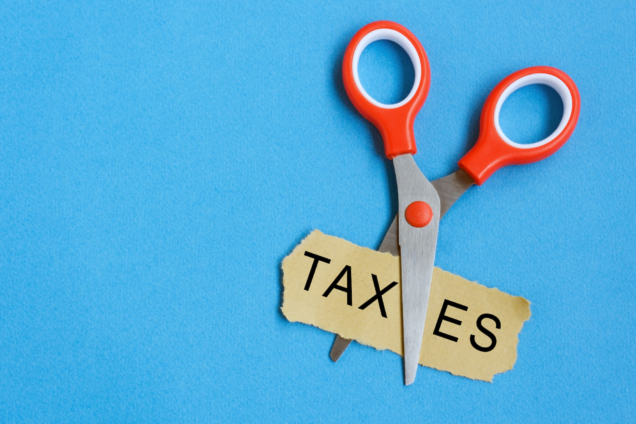Ghana’s tax system has long been plagued by inefficiencies, with progress in addressing its flaws remaining slow.
While some reforms have been introduced, they are far from sufficient to generate the revenue required for national development. The next government faces a critical challenge: implementing meaningful changes to broaden the tax base, create a fairer system, and boost national revenue.
One significant issue is the narrow tax base. Workers in the formal sector, such as teachers and nurses, bear a disproportionate tax burden despite their modest incomes.
In contrast, many in the informal sector—such as masons, traders, and hairdressers—contribute little or no taxes. For example, a mason earning GHS 10,000 weekly often evades taxation, while a teacher earning GHS 2,500 monthly is heavily taxed.
This inequity is perpetuated by weak enforcement, mistrust in the system, and inadequate mechanisms to track incomes in the informal sector.
Systemic inefficiencies exacerbate the problem. Corruption, tax evasion, and outdated systems hinder the Ghana Revenue Authority (GRA) from collecting taxes effectively.
Although digitalisation has been discussed as a solution, implementation has been slow, leaving the country overly reliant on foreign loans.
The 2022 IMF bailout, for instance, came with stringent conditions that further strained living standards. To reduce such dependence, Ghana must prioritise raising revenue domestically.
Tourism presents a promising avenue for increasing revenue. While the sector currently contributes approximately $2 billion annually, targeted investments and strategies could double this figure. Countries like the UK, which generates over £100 billion annually from historical landmarks, cultural heritage, and diverse entertainment options, offer valuable lessons.
Initiatives such as "Visit Britain," seamless airport connectivity, and simplified visa processes have made the UK a global tourist hub.
Similarly, South Africa and Kenya generate billions from wildlife safaris and national parks, while Morocco and Rwanda thrive on cultural festivals and eco-tourism, supported by investments in infrastructure such as roads, airports, and resorts.
Ghana can emulate these successes by expanding its "Detty December" programmes, which attract African Americans, Europeans, and Britons. Extending events beyond Accra, improving infrastructure, and partnering with airlines for discounted travel packages could significantly boost tourism revenue.
Enhancing historical sites like Cape Coast Castle with virtual tours, promoting eco-tourism, and leveraging digital marketing to reach the African diaspora could elevate Ghana’s appeal, potentially increasing tourism revenue to over $4 billion annually while creating jobs and stimulating local economies.
Additionally, Ghana must improve the management of its natural resources. The gold, oil, and cocoa sectors suffer from poor contracts and a lack of value addition.
For instance, processing cocoa beans into chocolate locally would generate significantly more revenue than exporting raw beans. While these solutions are well-known, progress in implementing them has been disappointingly slow.
The Ghana Card offers an opportunity to broaden the tax base by linking it to tax records. However, efforts must be intensified to include informal workers.
Simplifying tax systems for small businesses and self-employed individuals, coupled with incentives such as access to loans or health insurance, could encourage compliance. Moreover, adopting digital systems to reduce corruption and improve transparency in tax collection is crucial.
Rebuilding trust in the tax system is essential. Citizens need to see their taxes translated into visible development projects, such as better roads, schools, and hospitals.
Transparent and fair use of tax revenues would encourage compliance and foster a culture of civic responsibility. Leaders must also ensure fairness by holding both large corporations and small traders accountable.
Fixing Ghana’s tax system requires bold and decisive leadership. The government must take concrete steps to broaden the tax base, enhance transparency, and educate the public on the importance of taxation.
These reforms, when fully implemented, can generate the revenue Ghana needs for sustainable growth and reduce reliance on foreign loans.
The time for action is now. By reforming the tax system and optimising the tourism sector, Ghana can unlock its full potential and chart a path towards sustainable development. Leadership and commitment are the keys to turning this vision into reality.
Latest Stories
-
Speaker refers to NPP MPs as ‘Micro-Minority,’ sparks outrage
3 minutes -
NJOA: An ode to Professor Naana Jane Opoku-Agyemang
15 minutes -
Scuffle breaks out during recollation of Ablekuma North parliamentary results
34 minutes -
CLOGSAG condemns forceful ejection of civil servants from official residences
39 minutes -
Europe will not allow attacks, says France, after Trump Greenland threat
60 minutes -
Kejetia traders uneasy about recent fire outbreaks in some markets
1 hour -
KATH Child Health Directorate launches operating standards and antimicrobial prescribing guidelines
1 hour -
We can encourage Burkinabe leader to embrace democracy – Joyce Bawah
2 hours -
‘I cried after watching highlights of Accra Lions’ defeat to Dreams FC’ – Sannie Daara
2 hours -
Free SHS: Let your wards come to school with food – CHASS tells parents
2 hours -
Dear SWAG, where the nation has fallen short, rise to the occasion for Rose Yeboah
2 hours -
Willfully causing financial loss to the state: Expanding the frontiers
2 hours -
Police commend public for cooperation during presidential inauguration
2 hours -
Ayisi kicks off 2025 with ‘New Beginnings’ – A clean slate and a great tune
3 hours -
Legitimacy of 3 contested MPs confirmed for 9th Parliament
3 hours

